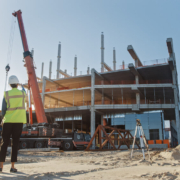I Am Looking to Buy a Commercial Building – What Type of Due Diligence Should I Do?
The purchase of a commercial property can involve a high degree of risk, particularly if you don’t find out as much as possible before closing the deal. While there are some protections in place for purchasers of residential properties, it is assumed that the parties involved in commercial real estate transactions are more sophisticated.
The old adage of “buyer beware” applies strongly to commercial real estate purchases. Traditional rulings of the courts indicate that the buyer will be stuck with whatever they purchased with limited recourse. Because this is a likely result, extra caution makes sense in these transactions with a thorough due diligence process.
What is Due Diligence?
Due diligence for commercial real estate means conducting a thorough investigation into every aspect of the transaction before closing. As the buyer, this process helps you learn more about the seller, the property, and the financial aspects of the deal so there are no surprises after the transaction is complete.
The scope of your due diligence will depend on the transaction and your goals as a buyer. For example, a buyer who is purchasing property to develop will have different needs than someone that is buying property to use for the operation of a business or as an investment to generate revenue.
Once you have established the use for the property and your goals, you can create a framework for your due diligence process. In general, there are three broad categories of due diligence; physical due diligence, legal due diligence, and financial due diligence.
Physical Due Diligence
As its name suggests, you want to ensure that the building structure, land, and other physical features are everything that was represented to you by the seller. Lenders and buyers require certain standard third-party reports that reveal a great deal of information. These include the appraisal, zoning compliance, building/engineering reports, and environmental investigation.
Buyers shouldn’t rely on the seller’s representation that a property is in compliance with zoning. If you plan to make changes to the property, it’s vital you independently research the site’s zoning as well as the requirements to make a change with the local planning department.
A building/engineering report is the equivalent of a home inspection report on a residential property. This will give you an in-depth look at the property’s electrical, HVAC, and other vital systems. The engineer will also note any structural or maintenance issues.
Most lenders require a minimum of a Phase I Environmental Report. The findings of this report will determine if there is any cause for concern and let you know whether further testing is warranted.
Legal Due Diligence
Another essential aspect of due diligence is the examination of the title. Working closely with the title company, we can deliver a commitment to issue a title policy which ensures that you will get a clear title to the property upon closing. If there are any impediments, such as liens or municipal code violations, these should be discovered sooner rather than later.
Financial Due Diligence
One of the most important aspects of due diligence is the financial element. People don’t purchase a commercial property to lose money, so you should have every assurance that what you are buying is indeed a good investment.
As a buyer, you should obtain the financial documentation showing the property’s current and past net operating income. Specifically, you’ll want to see at least three years of financial data on the property. What monthly and annual expenses are associated with owning and running the property? If the property has tenants, a review of the leases is necessary to determine the terms of the leases and other important considerations.
Buyers should also insist on examining the tax returns of the person or entity that currently owns the property (the seller). These figures should confirm the reported financials. On the other hand, if the seller is reporting dishonest numbers on their taxes, this could be a red flag for the transaction.
While historical records are vital, it’s also important to take a close look at any changes you plan to make to the property. How will these changes to the property impact these financial results?
San Diego Due Diligence Real Estate Attorneys
Due diligence is a complex, comprehensive, and critical process in any commercial real estate transaction. As the buyer, you don’t want any stone left unturned since an omission or misrepresentation can be costly.
The experienced real estate attorneys at Garmo and Garmo, LLP provide comprehensive due diligence services for clients throughout San Diego County and Southern California. For a free consultation with one of our attorneys, call our office today at 619-441-2500 or send us a message through our web contact form.





